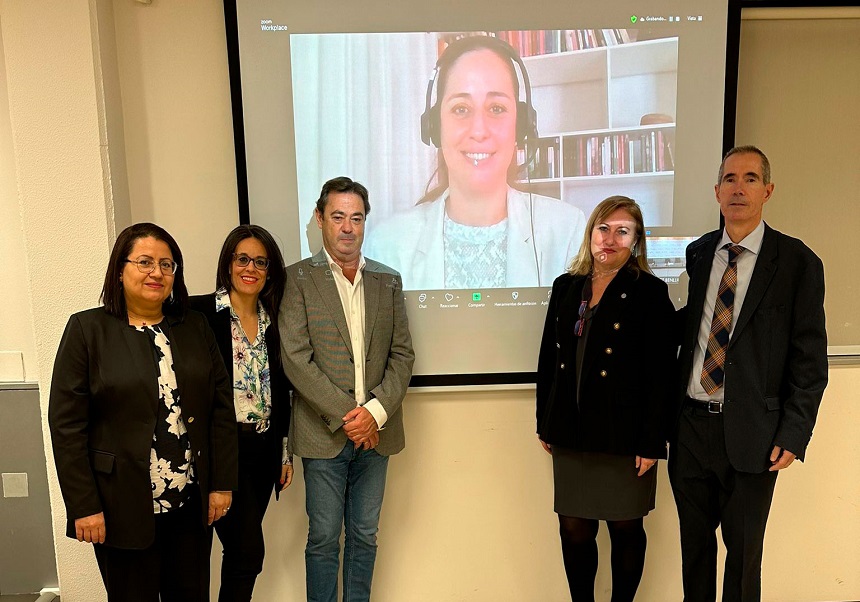
Jimena Andrieu defended her doctoral thesis at the Universitat de València on 10 January, entitled ‘La Economía Social y Solidaria en la apicultura argentina. Contributions to sustainability’. The thesis was supervised by Dr. Adoración Mozas Moral, president of CIRIEC-Spain, and Dr. Enrique Bernal Jurado, both professors at the University of Jaén.
The examining board was chaired by Domingo Enrique Ribeiro Soriano, professor at the UV and director of the PhD programme in Social Economy and Non-Profit Organisations at IUDESCOOP. The panel was completed by professors Raquel Puentes Poyatos (University of Jaén) and Saida Elfkih (Olive Institute Tunisia).
The general objective of this research is to understand the contribution of beekeeping in Argentina to sustainability with an emphasis on the social economy sector. To this end, the Sustainable Development Goals of the 2030 Agenda are taken as a frame of reference and the practices of private companies linked to beekeeping production in Argentina, particularly cooperatives, are analysed.
In this context, the contribution observed in terms of gender equity and the forms of market insertion are studied, especially the drivers and inhibitors for greater internationalisation of the sector. The thesis also includes an analysis of the place of e-commerce and digital transformation within these entities.
According to author Jimena Andrieu, the research highlights the sector's role in employment generation, growth and a strong environmental commitment. At the same time, the challenge for the future is to improve the conditions of employment generated and the development of green certification strategies in the face of production environments that are more exposed to pollutants. There is also a positive relationship between greater use of digital tools and a more direct link between the production sector and the consumer. However, there are shortcomings in the use of these tools in general, but particularly in the cooperative sector, which need to be remedied.
Cooperatives and SE entities, according to the report, support equitable growth, mainly in terms of inclusion of women and less capitalised producers throughout the country, including in areas marginal to beekeeping production. However, it points to a number of challenges linked to the need to improve the use of ICTs, generate full-time employment, and improve access to credit and infrastructure development.
The research, in the author's words, opens up new study possibilities to make the sectoral contribution visible within other branches of the Argentinean agricultural sector. Furthermore, it is argued that this work can be strengthened by further studying the processes of vertical and horizontal segregation for women and by making other forms of work specific to the cooperative sector visible.
The conclusions of the study include a strategic methodological proposal in an environment of low availability of primary information with specific contributions for organisations in a sector that is atomised throughout the country. It identifies problems and strategies that are specific to the Argentinean beekeeping sector, but which are common to many other emerging economies.
The thesis can be consulted at the Roderic repository of the Universitat de València: here





